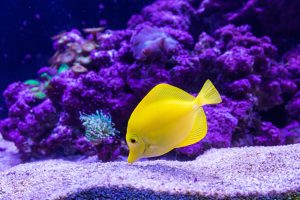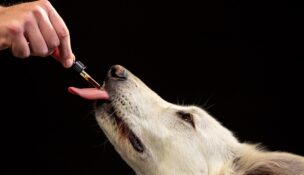PIJAC Holds Town Hall on Aquatic Industry
Pet Age Staff //November 8, 2017//
Court decisions could close the Hawaii ornamental fishing industry; detecting the illegal use of cyanide in fishing is being studied; state-level aquatics and invasive species issues are being tackled by lawmakers and the industry in Michigan.
These issues dominated the annual Pet Industry Joint Advisory Council (PIJAC) Aquatic Experience Legislative Update on Friday, November 3. Hundreds of Aquatic Experience attendees, including aquatic and fish hobbyists, full-time professionals, retailers, and industry experts, flocked to the town hall-style event at the Schaumburg Convention Center in Chicago, Illinois.
“Every year, hundreds of people nationwide come to the PIJAC Legislative Update,” said moderator Robert Likins, PIJAC’s vice president of Government Affairs. “This year was no different, except that the focus was much sharper due to the threats facing the industry.”
Attorney Jim Lynch called in to address court decisions that could close much or all of Hawaii’s ornamental fishing industry. Andrew Rhyne, Ph.D., an expert in marine biology, likewise called in to describe a study he is conducting on the accuracy of the accepted method for detecting the use of cyanide in fishing.
In addition to Rhyne’s work, Chris Buerner of Quality Marine described how a PIJAC-funded study examining the detection of cyanide in ornamental fish could better identify when it has been used.
Likins, Buerner and other speakers were in-person for their presentations. Preuss Pets owner Rick Preuss, who is based in Michigan and also runs a pet industry radio show, told attendees about challenges in his state related to invasive species and other aquatics issues.
Sandy Moore, president of Segrest Farms and co-chair of the PIJAC Aquatics Committee with Buerner, spoke on industry funding of aquaculture efforts and the limitations and ecological benefits of both farm raised and wild caught aquarium fish.
Buerner closed out the Legislative Update by asking attendees to donate to PIJAC’s efforts in Hawaii. He, Moore, PIJAC Board Chair Laura “Peach” Reid and other town hall attendees across the breadth of the aquatics industry presented PIJAC with donations to assist with the association’s fight against industry opponents.
“This funding is necessary to fight two recent court decisions that may shut down Hawaii’s professional and hobby fishers, as well as to work with state officials on an environmental impact study,” Buerner and Moore said after the Legislative Update. “These alone will easily cost the industry more than $200,000 in addition to activists’ efforts in Maine, Michigan and elsewhere.”
“Much of this is borne by PIJAC in its role as the responsible pet trade’s association,” Moore and Buerner said. “We urge the industry to donate as much as it can for the legal, legislative, regulatory, and compliance fights ahead.”
“I couldn’t be more proud of PIJAC’s hard work on behalf of the aquatics industry, which showed throughout the Legislative Update,” said Reid, who is also CEO of FishMart, Inc. “The World Pet Association deserves the entire industry’s thanks for hosting not only Aquatic Experience, but also this town hall-style information session so that fish professionals, hobbyists, and experts can understand the serious threats facing the industry.
“I was proud to donate on Friday, and to continue to support PIJAC in any way that I can,” Reid concluded. “It is PIJAC that is standing between the aquatics industry’s survival and the extinction of our industry desired by extreme activists.”



















